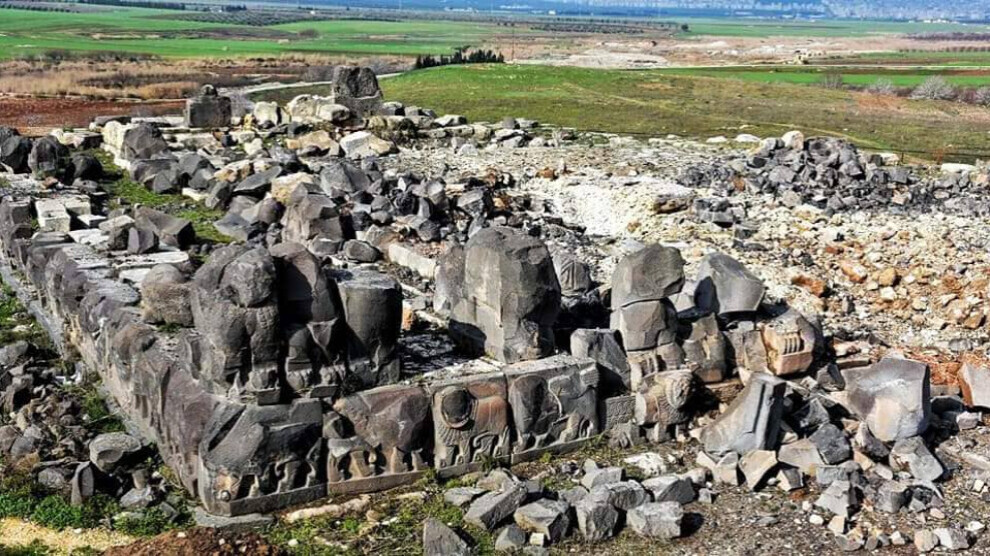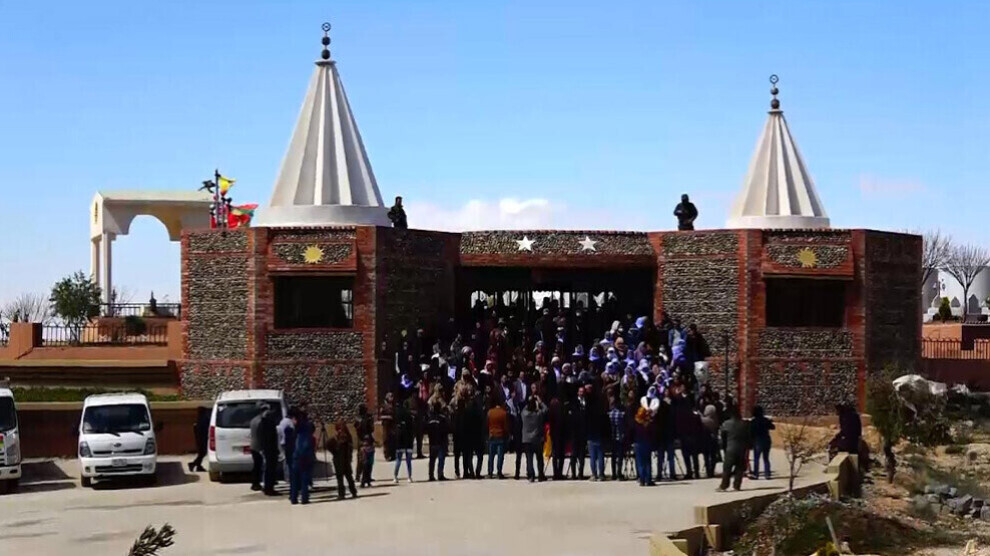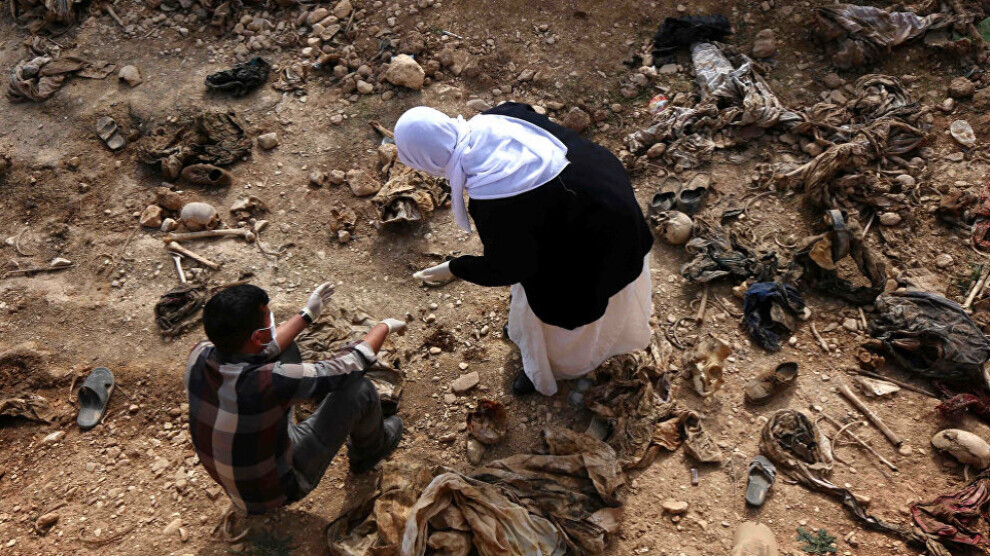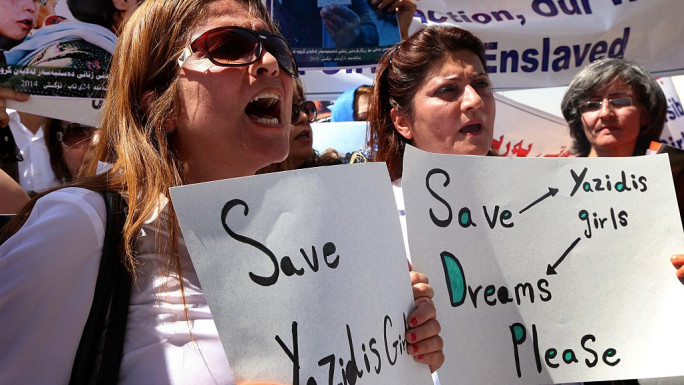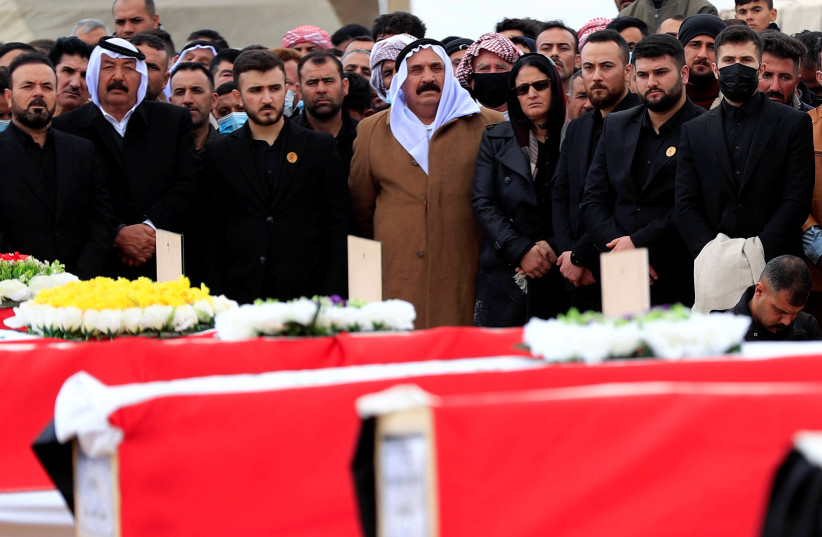
Mourners stand next to the coffins with the remains of Yazidis
Search continues for missing Yazidi women
It is one of the most horrific acts of genocide in human history: the systematic attempt by ISIS to murder the Yazidi minority community in Iraq and then sell its women and children into slavery
ISIS, an Islamist extremist group, specifically targeted the Yazidis as a non-Muslim minority community, using theocratic concepts akin to Nazism that portrayed them as sub-humans to be traded as slaves. They numbered them, like the Nazis did to Jews, and transported them to centers to be photographed and traded. Most horrific, they sold them to men to be raped, with the videos of the men cheering the “right” to rape slaves often being posted online at the time.
Now, seven years later, the minority community is seeking to raise awareness that 2,900 people are still missing. There are hashtags and an online media campaign. Many children were kidnapped or raised by ISIS in families. Some were taken to Al-Hol camp where they have been found over the last several years.
In some horrific cases, European ISIS members, some of them from places like Germany who were converts to Islam and whose grandparents may have been Nazis two generations ago, participated in the enslavement and murder of Yazidis. One woman on trial in Germany left a little girl outside to die in the hot sun.
For Yazidis who want to know the fate of the children, this is a kind of last chance. Many of the children were forcibly brainwashed and indoctrinated. But the international community has done little for the Yazidis. While millions are plowed into some other areas in the Middle East, there is little investment or aid for Yazidis and Sinjar. Some efforts to document the mass graves and catalogue the missing and the genocide continue slowly. Online activists are asking for help to rescue kidnapped Yazidis.
The attempted genocide happened in 2014 when ISIS launched a surprise attack on Sinjar in northern Iraq that August. The Yazidi towns and villages were spread out on flatlands beneath Mount Sinjar and they had few weapons to defend themselves. They had been targeted by jihadists before, including numerous genocides over the years. Some 500,000 fled overnight as ISIS attacked, but many thousands of men and women ended up in the hands of the religious extremist criminals.
ISIS was methodical in its sorting of the people it had captured. This was not spontaneous, but planned. They captured the villages and separated the men and women.
When I went to Sinjar in 2015, a year after the genocide, the mass graves were just being found, documenting what was done. ISIS took the men and elderly women and shot them, burying their bodies in shallow graves. Then, it took the children and women and transported them for sale in Mosul or Syria. There they were paraded and even sold online on social media and messaging applications.
Big tech companies have done nothing to help the families of the missing trace and find those who were offered for sale on their platforms. In many cases, the companies closed down millions of pro-ISIS accounts but didn’t save the evidence of trafficking and selling of people to help the victims. This is because the companies know their profits might be harmed if it was shown they knew their platforms were used for modern day slavery.
Now, years later, after the online slave auctions closed down and ISIS had been defeated and crushed by the US-led international coalition, Kurdish fighters and Shi’ite militias, the families of the Yazidis wonder where their loved ones are. Even those who have been found face a difficult journey.
- Some women emerged from captivity with children. For the community this has been difficult. Iraq demands that the children be raised as Muslims, presuming that the fathers were ISIS members and thus “Muslims.” For the community this is impossible: How can a minority group be forced to raise their children in another faith? Iraqi law cares about the religion of the father
The real story is the 2,900 missing; the community wants answers and help. Even if they perished in the war, people want to know where the bodies are.
In general they have not provided any resources or hi-tech facilities to aid in tracing the victims of ISIS or aiding the survivors. That isn’t entirely surprising.
https://www.jpost.com/middle-east/searc ... sis-669239





















